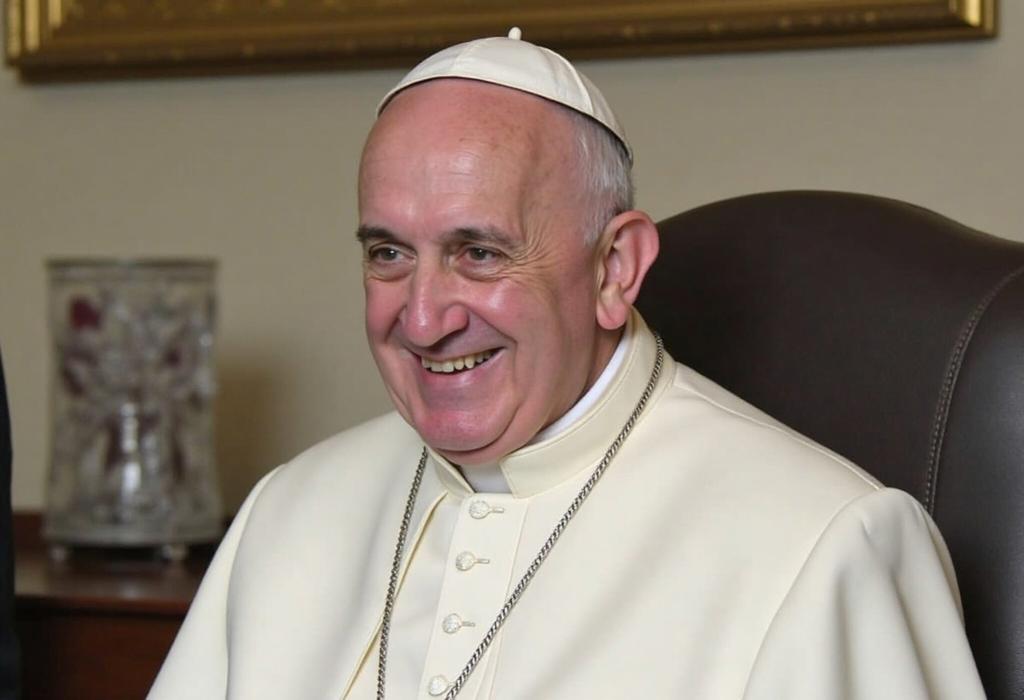In the wake of Pope Francis' passing, Vice President JD Vance had a brief encounter with the pontiff shortly before his death. Vance, a convert to Catholicism and a staunch proponent of stricter immigration policies, was charged with the weight of the Pope's compassionate legacy, particularly regarding the treatment of migrants. Francis, known for his humane approach, delivered his final Easter message, lamenting the contempt shown towards the vulnerable and urging leaders to combat fear-driven politics that isolate rather than unite.
The Pope’s message stood in stark contrast to Vance's campaign rhetoric, which has included inflammatory claims about Haitian immigrants. Despite this interaction, the expectation remains that Vance will largely ignore the Pope's appeal, just as he has disregarded Francis' previous critiques aimed at figures like Donald Trump, who is also expected to dismiss the pontiff's humanitarian calls.
In this regard, the report highlights the urgency of Francis' admonition against mass deportations and unjust treatment of immigrants. For instance, a recent Washington Post article detailed the harrowing conditions in Migrant detention centers, illustrating the human cost of current enforcement policies that overwhelmingly affect those without any criminal record. It challenges the narrative that only 'criminals' are targeted in detentions, revealing that many of the deported individuals are merely seeking a better life, a viewpoint that's often overlooked in political dialogues.
Further complicating the discourse is the political landscape shaped by Vance and Trump, known for their tough-on-immigration stances. The Vatican, led by Francis, once again acts as a moral compass, calling for compassion and the upholding of dignity for all people, especially those fleeing dire circumstances. The Pope's impactful involvement in social issues such as immigration and poverty invites a conversation about the relevant intersection of faith and politics.
Ultimately, this juxtaposition of Vance's political ambitions against the Pope's humanitarian vision raises pertinent questions regarding the moral responsibilities of leaders. A key element here is whether Vance and Trump will absorb any lessons from Francis' messages or if they will continue to pursue their politically advantageous narrative at the expense of marginalized communities. The article serves as a poignant reminder that in moments of high political tension, the voice of a compassionate leader like the Pope can challenge existing norms and call for action rooted in humanity.
The coverage emphasizes the palpable tension between political ideologies and ethical responsibilities, illustrating how the Pope’s compassionate outlook resonates not just within the Catholic community but among all who seek a more humane society. It encourages readers to reflect critically on the political treatment of migrants and the moral imperatives presented by religious leaders, particularly as a new papal conclave approaches following Francis' death.
AD
AD
AD
AD
Bias Analysis
Bias Score:
75/100
Neutral
Biased
This news has been analyzed from 17 different sources.
Bias Assessment: The reporting displays a clear bias against Vice President JD Vance and Donald Trump by emphasizing their negative perceptions and decisions regarding immigration. The author often employs emotionally charged language to criticize their policies while favoring the Pope’s humanitarian views. This bias is driven by the moral underpinnings of the topic, where the author's stance on immigration and compassion shapes their portrayal of political figures, leading to a subjective narrative.
Key Questions About This Article




